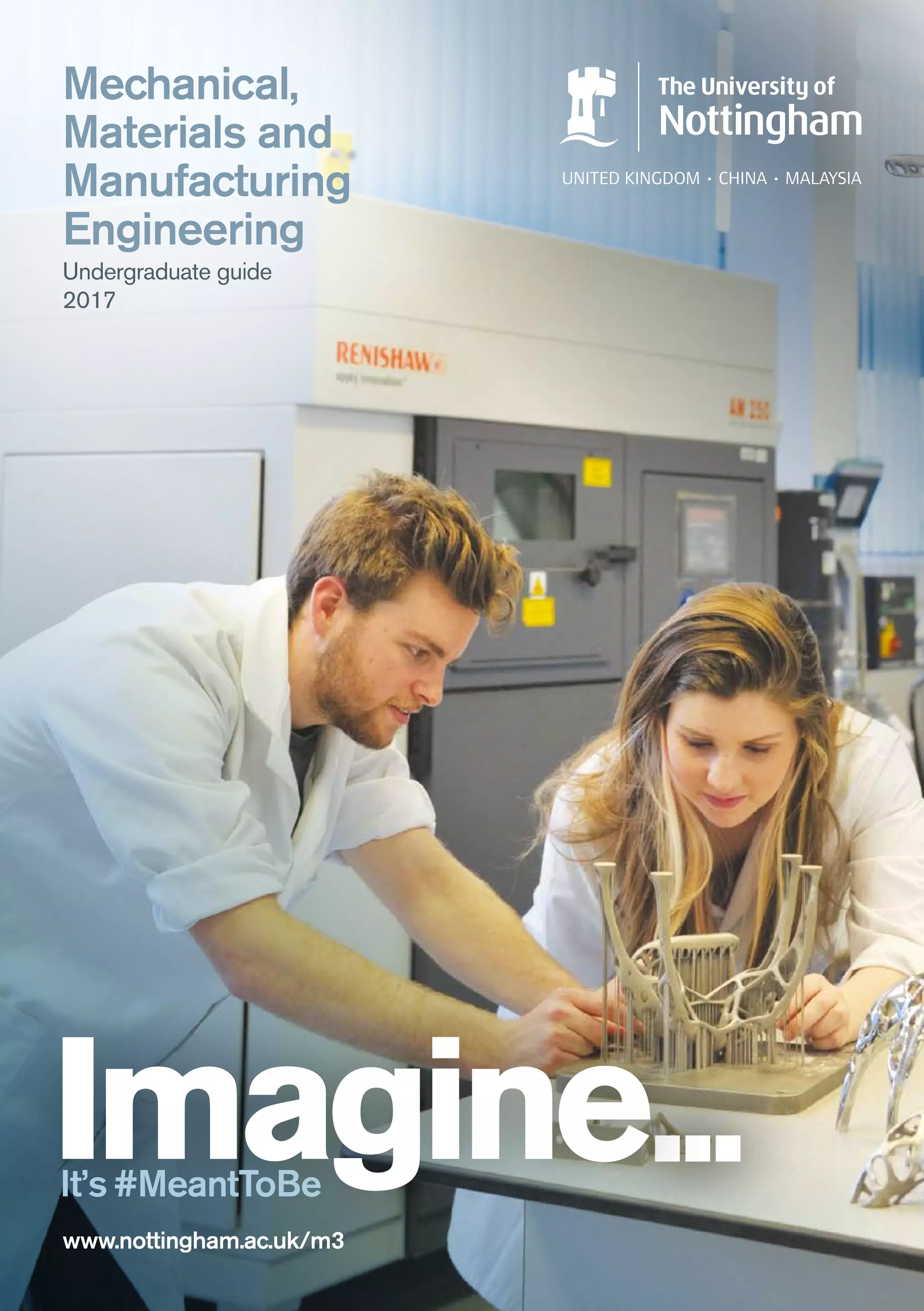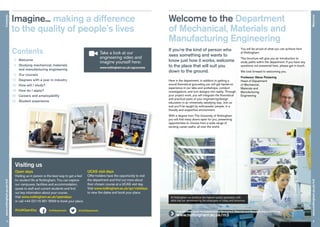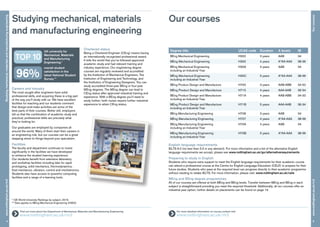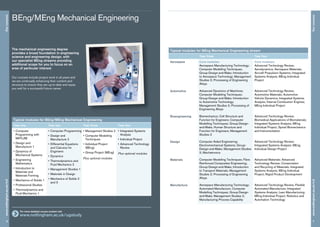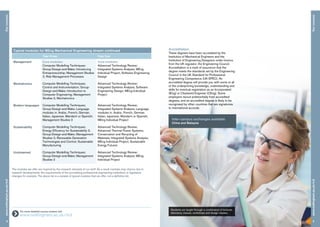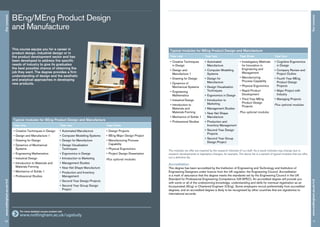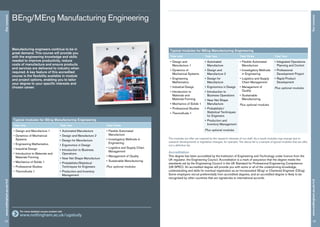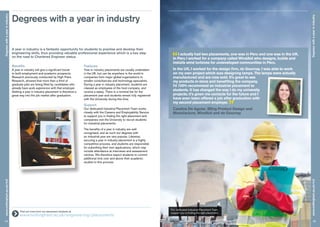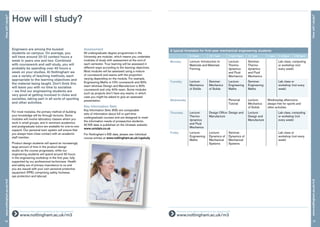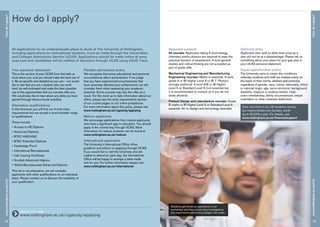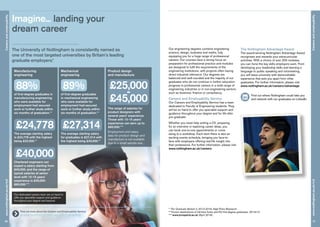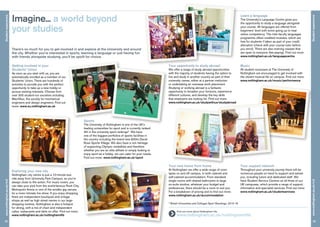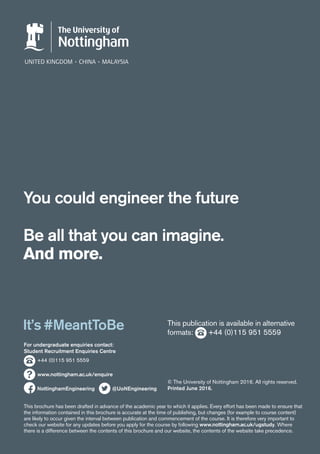This document provides information about mechanical, materials and manufacturing engineering programs offered at the University of Nottingham. It includes welcome messages, an overview of available courses and degrees, admissions requirements, facilities and resources, career outcomes, and typical module descriptions. Students can study to receive BEng or MEng degrees, and some programs offer the option to complete an industrial year placement. The department and university aim to provide both theoretical and practical, hands-on learning experiences to prepare students for careers in engineering fields.
